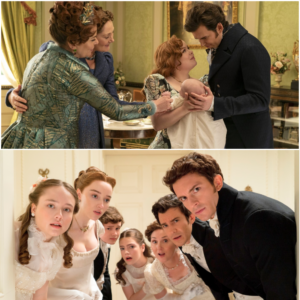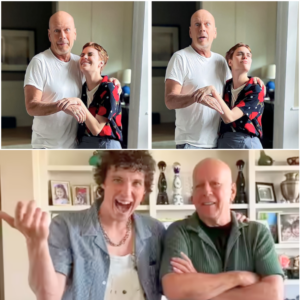On May 21, 2025, the 78th Cannes Film Festival welcomed a familiar face to its prestigious red carpet: Jodie Foster. The Oscar-winning actress and director, now 62, premiered her latest project, Vie Privée (A Private Life), a French-language psychological thriller directed by Rebecca Zlotowski. The film, which screened out of competition, marks a significant milestone for Foster as her first starring role in a French production, a language she speaks fluently. However, beyond the buzz surrounding her performance, Foster made headlines with a candid revelation to Reuters during the festival: she currently prefers life outside the United States, citing better conditions in Europe’s film industry and the personal freedom she now enjoys as her children have grown up.
A Triumphant Return to Cannes
Foster’s history with Cannes is storied. She first attended the festival at the tender age of 13 in 1976 for Martin Scorsese’s Taxi Driver, a film that won the Palme d’Or and launched her into the global spotlight. Over the decades, she has returned to the Croisette for various projects, including Bugsy Malone (1976), Money Monster (2016), and The Beaver (2011), the latter two as a director. In 2021, Cannes honored her with an Honorary Palme d’Or for her lifetime achievements, a testament to her enduring impact on cinema. Her appearance in 2025, however, carries a different weight—not only is she acting in French, but she’s also embracing a new chapter in her personal and professional life.
Vie Privée follows Foster as Lilian Steiner, a renowned American psychiatrist in Paris who becomes convinced that her patient’s suicide, portrayed by Virginie Efira, was actually a murder. The film, co-starring Daniel Auteuil as her ex-husband and featuring a strong ensemble including Mathieu Amalric and Vincent Lacoste, blends genres in a way that Foster describes as quintessentially European. The premiere was met with an impressive ten-minute standing ovation, with Foster visibly moved as she embraced Zlotowski, gesturing to ensure the director received her share of the applause. Distributed by Sony Pictures Classics in North America, the film is poised to appeal to audiences seeking sophisticated, character-driven narratives.
Why Europe Appeals to Foster
During a press conference at Cannes, Foster elaborated on her preference for working and living outside the US. “I feel a lot freer,” she told Reuters, attributing this to both her personal circumstances and the creative environment in Europe. Now that her two sons, Charles (born 1998) and Christopher (born 2001), are adults, Foster has more flexibility to pursue projects abroad. She shares her sons with her former partner, Cydney Bernard, and has been married to Alexandra Hedison since 2014. This newfound freedom has allowed her to immerse herself in international cinema, particularly in France, where she has deep ties.
Foster’s fluency in French dates back to her childhood. Born Alicia Christian Foster in Los Angeles, she attended the Lycée Français de Los Angeles, a French-language prep school, and graduated as valedictorian of the school’s French division in 1980. Her command of the language has enabled her to dub her own performances in French versions of her English-language films and take on roles in French cinema, though Vie Privée marks her first lead role in the language in two decades, following a supporting part in A Very Long Engagement (2004). “This is something I wanted to do for a long time,” Foster admitted at the Cannes press conference, noting the challenge of delivering extensive dialogue in French. “When I act in French, I’m a totally different person: my confidence isn’t as high, and my voice is higher. It creates a new character for me.”
Professionally, Foster finds Europe’s film industry more conducive to her creative instincts. She highlighted the stark contrast between American and European filmmaking, particularly in France, where directors enjoy greater creative control. “In the US, studios want a film to be either a thriller or a comedy—they don’t want a mixture of the two,” she explained. “But in France, the director has more authority on such decisions. That’s the reason why filmmakers love to come here.” This freedom to blend genres, as Zlotowski does in Vie Privée—part thriller, part character study, part relationship comedy—resonates deeply with Foster, who has long valued narrative complexity in her work.
A Champion for Female Directors
Foster also pointed to Europe’s more inclusive environment for female filmmakers as a reason for her preference. As a director herself, with credits including The Beaver (2011) and Money Monster (2016), both of which premiered at Cannes, she has experienced firsthand the challenges of navigating a male-dominated industry. “I’d only worked with one female director until a few years ago,” she remarked. “Isn’t that kind of amazing? After I’ve made 60 movies, I’ve barely ever worked with another woman.” In contrast, she noted, “Europe has always had a female tradition, or at least for quite a while.” This aligns with her own advocacy for gender equity in film, a cause she has championed throughout her career, including her production work and mentorship of emerging talent.
Foster’s comments reflect a broader critique of Hollywood’s rigid structures, which often prioritize commercial viability over artistic vision. Her frustration with the American industry’s reluctance to embrace genre-blending or female-led projects echoes sentiments she has expressed in the past, such as during her 2013 Golden Globes speech when she accepted the Cecil B. DeMille Award for lifetime achievement. At Cannes, her reflections carry the weight of experience—she has navigated the industry’s highs and lows, from her early days as a child actor to her Oscar wins for The Accused (1989) and The Silence of the Lambs (1991), and now as a seasoned filmmaker seeking projects that align with her artistic values.
Vie Privée: A Showcase of Foster’s Versatility
The film itself has garnered significant praise for Foster’s performance. Critics have noted her seamless integration into the French cast, with her portrayal of Lilian Steiner described as both intense and charismatic. The story, which draws comparisons to Hitchcockian mysteries and even the comedic tone of Only Murders in the Building, follows Lilian as she teams up with her ex-husband, an ophthalmologist played by Auteuil, to investigate the suspicious death. The narrative weaves in elements of personal introspection, with Lilian’s uncontrollable crying—attributed to a tear duct issue—serving as a metaphor for her emotional repression. Reviews have highlighted Foster’s ability to balance the film’s darker moments with lighter, comedic scenes, particularly in her playful dynamic with Auteuil.
The film’s reception at Cannes underscores Foster’s enduring appeal. The ten-minute ovation, as reported by Deadline, and the star-studded audience—including Gael García Bernal, Alejandro González Iñárritu, and Scarlett Johansson—signal the high regard in which she is held. For Foster, the project was a deliberate choice to stretch her abilities. “I’m picky,” she told Variety. “I’m not really interested in acting just for the sake of acting. I need a story. A lot of French movies are behavior films where you just follow people around for three days. That’s not what I do. I’m interested in narrative and developing a character who propels the story.”
A Career of Reinvention
Foster’s career has been defined by reinvention, from her early roles in Taxi Driver and Bugsy Malone to her critically acclaimed performances in The Accused and The Silence of the Lambs. In recent years, she has balanced acting with directing and producing, earning accolades for her work behind the camera on projects like Orange Is the New Black and House of Cards, as well as her starring roles in Nyad (2023), which earned her an Oscar nomination, and True Detective: Night Country (2024), for which she won a Primetime Emmy. Her choice to take on Vie Privée reflects her ongoing desire to challenge herself, even after a career spanning nearly six decades.
At the press conference, Foster expressed a lighthearted goal for her next project: “The older I get, the more I want to be more lighthearted.” This sentiment hints at a potential shift toward comedy, a genre she has rarely explored but one that could showcase yet another facet of her talent. For now, though, Vie Privée stands as a testament to her willingness to take risks, both linguistically and artistically, in a setting that feels like a second home.
Looking Ahead
Foster’s preference for life outside the US doesn’t signal a permanent departure from American cinema, but rather a desire for the creative freedom and cultural richness she finds in Europe. With Vie Privée set for release later in 2025, audiences will have the chance to see her in a new light, navigating the complexities of a French mystery with the poise and intensity that have defined her career. As she continues to evolve as an artist, Foster’s journey serves as a reminder of the power of reinvention—and the allure of finding freedom in unexpected places.






